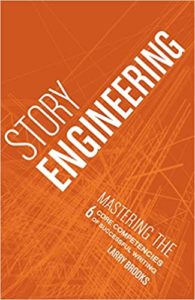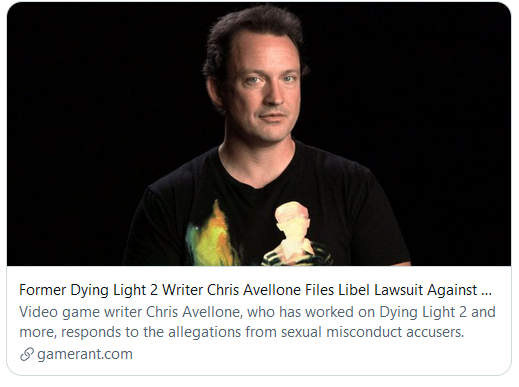 Like most writers, I came to writing through reading, and most of that reading was fiction, usually novels.
Like most writers, I came to writing through reading, and most of that reading was fiction, usually novels.
So, like most writers who write something else, I also wrote a novel. And as is usually the case with first novels, it was bad.
It took me some time to figure out why it was bad. It wasn’t the writing at the word, paragraph, or scene level. The conversations were fine, there was tension, the characters had character, and so on. Each scene on its own was usually at least decent, sometimes there were very good.
But the whole was unsatisfying. Beta readers told me this, though they couldn’t tell me why, but I could feel it myself. I’d felt it when I was writing it, most noticeably when I felt I had to keep writing after the plot was over, because some story-sense, built from reading thousands of novels, told me I hadn’t actually finished.
So I put it aside for a year or so, re-read it, and investigated. It turned out most of the problems were structural, and the most useful book I found on basic story structure was by Larry Brooks. I’ve read many similar books since, and while there are more complete books — maybe even technically “better” books, but none are as clearly written as Brooks’.
Of course, all such structure is something you can throw out later if you want. But as with all such rule-breaking, you first have to internalize why the rules exist and what they do.
Brooks’s book is about more than structure, and if you’re interested in the topic I recommend it. But I felt a synopsis of the structure was worth it even for people who will never write a fictional word, because what’s eerie is that once one reads stories this way, it pops up everywhere. Movies, TV shows, almost all novels. Our society has a specific narrative backbone, and it’s damn near universal in our story-telling. This isn’t an all-times, all-places backbone (the traditional Japanese novel, for example, does things differently), but within our society, it’s everywhere.
This is so much the case that when I recognize the first plot point (explained in a bit) now, I’ll check the page or word count or running time of the show. It’s supposed to come at 25 percent, and it’s almost always within one percent of that.
We think in stories, they structure our brain at least as much, and perhaps more than the other way around, so how stories are structured matters.
The standard story structure, per Brooks, has four acts (others use three, with the second twice as long, it’s the same thing.)
It has the following key moments:
ACT I
The first act is where you set up stakes. You introduce your main characters and you introduce the world they live in before it it is changed at the end of the first scene. This is where the author tries to get you to care about the character, so that when things change, you want to go along for the ride. Fail to introduce the stakes properly, and all the problems later on won’t matter. In my novel, a lot of the emotional stakes were based on a threat to the protagonist’s family, but I didn’t introduce them well, so why would readers care?
The other thing is that, in terms of character or world change, this shows the world as it was before things went bad. Perhaps your protagonist is a doctor who thinks her job is great, her life is great, everything is great. That’s all going to change, but seeing what she had before she realizes her husband is cheating and the hospital is harvesting organs matters: What does she want back? What does she begin fighting for?
The Opening Scene
In the first scene, something that matters happens, and it’s usually something which will have huge consequences later. This can be dramatic; perhaps the protagonist is fired, or finds out their spouse wants a divorce. Or, it can be minor; the boss wants them to go on a business trip or the spouse says, “Perhaps we should try couple’s therapy.” At the start, it’s not clear how much this will matter, how it will matter or why.
The Hooking Moment
This often happens in the first scene. In the first novel of the Expanse series it is a woman locked in a closet as her crewmates are experimented on and turned into biological body horrors, for example. It is the, “What’s this story about?” moment. For a movie like “Top Gun,” it’s just a scene of cool fighter jets. For “Mulan,” it is the Great Wall being scaled by enemies. For our doctor, it might be noticing that all the autopsies on her healthy ER patients are done by the same doctor, and wasn’t she laughing with the doctor’s husband, their heads very close together?
This is supposed to be within the first 20 pages of a novel or so.
An Optional Inciting Incident
This is where the protagonist becomes involved. Our doctor goes to the morgue to check on a patient who was the daughter of a friend and who she thought would survive that car accident, and the body is already gone. She finds two other bodies already gone. She remembers other patients she thought would live, finds out their bodies had been removed quickly too. She decides to investigate, but still thinks it’s probably some administrative snafu or at worse, someone covering their ass.
The First Plot Point
This is where, because of action the hero takes, everything changes. In “Thelma and Louise,” this is when they decide to make a run for Mexico. It’s not when Louise kills the would-be rapist, it is when they decide what to do in reaction to that killing. It’s a completely different story if they go to the police and say, “That guy tried to rape her, so I shot him, shit.”
With our doctor, this is when, after bringing up her initial findings with her supervisor and being given a story and told the supervisor will handle it, she chooses instead to follow the truck leaving the hospital after her next accident victim dies when they shouldn’t have. And she saw the driver talking to her husband.
The first plot point is where the protagonist chooses to leave the old world. If the doctor just dropped it, she could keep her marriage and labouring under the assumption that she was doing good at the hospital. She could keep her life. But because she doesn’t drop it, she will probably lose everything. All she has to say is, “This is not my problem.”
ACT II
Act 2 is where the protagonist does all the reactive things one would do. If you know of a crime, you go to the police (or have a damn good reason not to). You tell your boss. You file for UI. You play the game by the rules, expecting the rules to work.
You are reactive and it doesn’t work, but you do the reasonable things, including trying to hand off responsibility to the authorities, which is what reasonable people do.
The First Pinch Point
This is just a scene where you see the antagonistic force in full fury. If it were a book or movie about a storm, you might see another ship smashed and sunk by the storm, see the victims screaming for help and be able to do nothing for them. Sometimes, we see this through the protagonist’s eyes (often as they hide, unseen by the villain and helpless to intervene); other times we may see it through the villain’s eyes or the eyes of a victim. Sometimes the protagonist is the victim, as the enemy forecloses on their business, buys their mortgage, and forces them out of the house, even as the husband says, while he clings to the villain’s arm, “She’s promised to be a good mother to our children.”
The more awesome or hateful the villain, the greater the stakes, the more the reader or viewer cares, so long as you don’t push into melodrama.
The Midpoint
Brooks’ definition is when “new information enters the story squarely the middle of it that changes the contextual experience and understanding of the hero, reader, or both.”
This is when you find out what wasn’t known before. The hospital isn’t just selling body parts, your husband is involved because his mother has a rare disease that requires transplants every year, and without them she’ll die. (Robin Cook’s Coma is a different version of the organ stealing story, as an aside.)
The midpoint in “Thelma and Louise” is when their money is stolen and Thelma robs a store to get more money. Up until then, everything was reversible. Killing a rapist is something they might get off on, but the robbery? No.
You can see the definition of the midpoint as information which is a bit slippery. Thelma’s money is stolen, that’s information, but how she reacts to it is what matters. They’re criminals now.
Third Act
In general terms, the first act is “who / what things were,” the second act is “reacting to the new world by doing all the expected things,” and the third act is “going on the offensive after all the usual things don’t work.”
Going to the cops and hospital authorities didn’t work, our doctor will have to try something else. The protagonist overcomes a lot of their issues at this point, and starts acting in ways that might actually succeed. If fear was an issue, the protagonist starts acting brave. If lack of initiative was the issue, the protagonist stops waiting for other people to act. If lack of planning was the issue, they plan. If not accepting help was the problem, they go get help.
A Second Pinch Point
As with the first pinch point, this just shows how dangerous the antagonist is. Perhaps the antagonist gave the mother-in-law the disease in order to secure her husband’s cooperation. Now, he gives it to one of their daughters.
A Second Plot Point
As with the first, this is new (and final) information injected into the story. No new information or characters will be introduced. The Titanic sinks, the cops have Thelma and Louise surrounded, our doctor finds proof that the villain has been infecting the loved ones of those whose cooperation he needs.
The Fourth Act
This is the shortest act. The rule is that we gain no new information or characters who matter. If the character has a flaw, she either overcomes it and wins, or fails to overcome it and loses. (You can die and win, of course.) The protagonist is the catalyst; their decisions drive the climax. This doesn’t mean they necessarily “wield the blade,” but if someone else does, it is because the hero made it possible. If the police swoop in, it is because the hero convinced them. If someone else kills the villain, it is because the hero made it possible for them do do so, and so on.
The Final Resolution Scene or Scenes
Whatever is the most important point, it is resolved. The ship survives the storm to stagger into port, or it tragically goes down. In “Titanic,” Jack sacrifices his life to save Rose. In “Thelma and Louise,” having finally become free and brave, they decide they’d rather die free than be arrested — and if they are going to die, it will be by their own hands. Our doctor shows those who were blackmailed to cooperate with the organ harvesting by their loved one’s diseases the proof, and they form a vigilante mob to take down the villain.
Note that character growth isn’t always “good.” Perhaps our doctor’s psychological issue was a need to always play by the rules, trust the law, and never hurt anyone, and it is only when she decides that she is the law and is willing to whip up a lynch mob that she can win.
Concluding Remarks
This is pretty different from what I usually write about on this blog, so hopefully readers found it useful. I will suggest that it’s more political than it seems, and that it’s worth looking for this story structure in the fiction you consume, of whatever kind. Then look for it in the narratives given to you about politicians and public figures.
The world doesn’t actually operate this way, but we often feel that it does or should. Often, that is used to manipulate us, but stories can also be a source of great power if one takes a role and plays it well, one will find others fall into their roles.
Everything I write here is free, but rent isn’t, so if you value my writing, please DONATE or SUBSCRIBE.



 Like most writers, I came to writing through reading, and most of that reading was fiction, usually novels.
Like most writers, I came to writing through reading, and most of that reading was fiction, usually novels. So,
So,